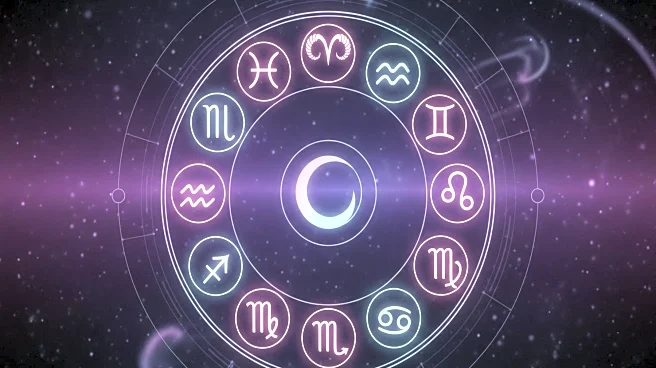What's Happening?
Netflix has launched a new astrology hub on its streaming platform, offering curated playlists that align with the character traits and themes associated with each zodiac sign. This initiative aims to personalize viewing experiences by recommending shows and movies that resonate with users' astrological profiles. For instance, Sagittarians are suggested action-packed titles like Lost and Fast & Furious, while Scorpios receive mystery-themed recommendations such as Knives Out. The hub is designed to engage users by connecting their zodiac signs with entertainment preferences, although it currently does not include horoscopes. As the zodiac calendar progresses, Netflix plans to update its Tudum page with detailed lists explaining why certain content should appeal to specific signs.
Why It's Important?
This development highlights Netflix's innovative approach to enhancing user engagement through personalized content. By leveraging astrology, a popular cultural phenomenon, Netflix taps into a unique method of content curation that could increase viewer satisfaction and retention. This strategy may set a precedent for other streaming services to explore similar personalized content offerings. The move could also influence how media companies utilize data analytics to understand and predict consumer behavior, potentially reshaping the competitive landscape in the streaming industry.
What's Next?
Netflix plans to continue updating its zodiac hub with new recommendations as each zodiac season arrives. This ongoing update will provide users with fresh content tailored to their astrological profiles, potentially increasing user interaction with the platform. The success of this initiative may prompt Netflix to explore further personalization strategies, possibly integrating more complex algorithms or expanding into other cultural or lifestyle-based content curation methods.
Beyond the Headlines
The introduction of astrology-based content recommendations raises interesting questions about the intersection of entertainment and personal identity. It reflects a broader trend of media companies seeking to create more intimate and personalized user experiences. This approach could lead to ethical considerations regarding data privacy and the extent to which personal information is used to influence consumer choices.









